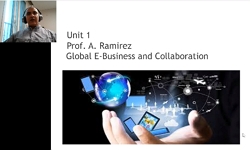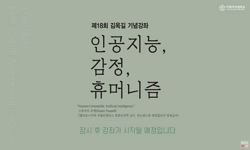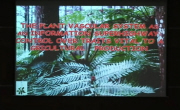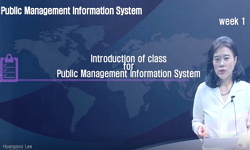Chatbots are new technology platforms based on artificial intelligence (AI) to support and serve customers by simulating human communication via voice commands, text chats, or both. The new AI technology is adopted to support tourists at tourism desti...
http://chineseinput.net/에서 pinyin(병음)방식으로 중국어를 변환할 수 있습니다.
변환된 중국어를 복사하여 사용하시면 됩니다.
- 中文 을 입력하시려면 zhongwen을 입력하시고 space를누르시면됩니다.
- 北京 을 입력하시려면 beijing을 입력하시고 space를 누르시면 됩니다.

Determinants of satisfaction and reuse intention of chatbots: An empirical study by using the TAM, AIDUA and IS success models
한글로보기https://www.riss.kr/link?id=A108341717
-
저자
Linh Tran Thi My (경희대학교 관광학과)
- 발행기관
- 학술지명
- 권호사항
-
발행연도
2022
-
작성언어
English
- 주제어
-
등재정보
KCI등재
-
자료형태
학술저널
-
수록면
17-36(20쪽)
- DOI식별코드
- 제공처
-
0
상세조회 -
0
다운로드
부가정보
다국어 초록 (Multilingual Abstract)
Chatbots are new technology platforms based on artificial intelligence (AI) to support and serve customers by simulating human communication via voice commands, text chats, or both. The new AI technology is adopted to support tourists at tourism destinations. Although the usage of chatbots is becoming a trend in the travel industry, few studies clarified why travelers are satisfied with chatbots and intend to reuse this AI platform for their next trips. This study develops a modified framework by integrating the artificially intelligent device use acceptance model (AIDUA), the information system success model (IS success), and the technology acceptance model (TAM) to explain why tourists are willing to use chatbots for vacation. The study's purpose is to help policymakers and tourism agents use AI systems more effectively in satisfying visitors. This study utilized the PLS-SEM method to test the framework by analyzing the data of 504 interviewees. Results suggest that information quality (IQ), system quality (SQ), hedonic motivation (HED), and social influence (SI) are determinants of perceived usefulness (PU) and perceived ease of use (PEU). In addition, the study also confirmed that the AI system's PU and PEU significantly affect tourist satisfaction. PU and satisfaction are crucial antecedents of users' reuse intention toward chatbots, and the effect of satisfaction is the strongest.
1 Jiménez-Barreto, J., "“Find a flight for me, Oscar!” Motivational customer experiences with chatbots" 33 (33): 3860-3882, 2021
2 Veeramootoo, N., "What determines success of an e-government service? Validation of an integrative model of e-filing continuance usage" 35 (35): 161-174, 2018
3 Althuizen, N., "Using structural technology acceptance models to segment intended users of a new technology : Propositions and an empirical illustration" 28 (28): 879-904, 2018
4 Wetzels, M., "Using PLS path modeling for assessing hierarchical construct models : Guidelines and empirical illustration" 33 (33): 177-195, 2009
5 Davis, F. D., "User acceptance of computer technology : A comparison of two theoretical models" 35 (35): 982-1003, 1989
6 Winkler, R., "Unleashing the Potential of Chatbots in Education : A State-Of-The-Art Analysis" 2018 (2018): 1-40, 2018
7 Bhattacherjee, A., "Understanding information systems continuance : An expectation-confirmation model" 25 (25): 351-370, 2001
8 Gao, L., "Understanding consumers’continuance intention towards mobile purchase : A theoretical framework and empirical study–A case of China" 53 : 249-262, 2015
9 Gupta, A., "Tourist adoption of mapping apps : A UTAUT2 perspective of smart travellers" 23 (23): 145-161, 2017
10 Henseler, J., "The use of partial least squares path modeling in international marketing" 20 : 277-319, 2009
1 Jiménez-Barreto, J., "“Find a flight for me, Oscar!” Motivational customer experiences with chatbots" 33 (33): 3860-3882, 2021
2 Veeramootoo, N., "What determines success of an e-government service? Validation of an integrative model of e-filing continuance usage" 35 (35): 161-174, 2018
3 Althuizen, N., "Using structural technology acceptance models to segment intended users of a new technology : Propositions and an empirical illustration" 28 (28): 879-904, 2018
4 Wetzels, M., "Using PLS path modeling for assessing hierarchical construct models : Guidelines and empirical illustration" 33 (33): 177-195, 2009
5 Davis, F. D., "User acceptance of computer technology : A comparison of two theoretical models" 35 (35): 982-1003, 1989
6 Winkler, R., "Unleashing the Potential of Chatbots in Education : A State-Of-The-Art Analysis" 2018 (2018): 1-40, 2018
7 Bhattacherjee, A., "Understanding information systems continuance : An expectation-confirmation model" 25 (25): 351-370, 2001
8 Gao, L., "Understanding consumers’continuance intention towards mobile purchase : A theoretical framework and empirical study–A case of China" 53 : 249-262, 2015
9 Gupta, A., "Tourist adoption of mapping apps : A UTAUT2 perspective of smart travellers" 23 (23): 145-161, 2017
10 Henseler, J., "The use of partial least squares path modeling in international marketing" 20 : 277-319, 2009
11 Chin, W. W., "The partial least squares approach to structural equation modeling" 295 (295): 295-336, 1998
12 Capa, R. L., "The interactive effect of achievement motivation and task difficulty on mental effort" 70 (70): 144-150, 2008
13 Ahn, T., "The impact of Web quality and playfulness on user acceptance of online retailing" 44 (44): 263-275, 2007
14 Makridakis, S., "The forthcoming artificial intelligence(AI)revolution : Its impact on society and firms" 90 : 46-60, 2017
15 Sano, A. V. D., "The application of aGNES algorithm to optimize knowledge base for tourism chatbot" 65-68, 2018
16 Wallace, L. G., "The adoption of software measures : A technology acceptance model(TAM)perspective" 51 (51): 249-259, 2014
17 DeLone, W. H., "The DeLone and McLean model of information systems success : A ten-year update" 19 (19): 9-30, 2003
18 Lim, J. S., "Testing alternative models of individuals’ social media involvement and satisfaction" 29 (29): 2816-2828, 2013
19 Lucas, H. C., "Technology use and performance : A field study of broker workstations" 30 (30): 291-311, 1999
20 Fryer, L. K., "Stimulating and sustaining interest in a language course : An experimental comparison of Chatbot and Human task partners" 75 : 461-468, 2017
21 Goldsmith, E. B., "Social influence and sustainable consumption" Springer International Publishing 2015
22 Richard, E., "Social exchange theory" 2 (2): 335-362, 1976
23 Ostrom, A., "Service research priorities in a rapidly changing context" 18 (18): 127-159, 2015
24 Ukpabi, D. C., "Robots, artificial intelligence, and service automation in travel, tourism and hospitality" Emerald Publishing Limited 105-121, 2019
25 Gamanyuk, A., "Restaurant table reservation chatbot for Facebook"
26 Hill, J., "Real conversations with artificial intelligence : A comparison between human-human online conversations and human-chatbot conversations" 49 : 245-250, 2015
27 Baker, D. A., "Quality, satisfaction and behavioral intentions" 27 (27): 785-804, 2000
28 Radziwill, N. M., "Quality of chatbots and intelligent conversational agents" 19 (19): 25-36, 2017
29 Danangfantasticity, "Press Release: Launching Chatbot Application In Tourism Industry"
30 Melián-González, S., "Predicting the intentions to use chatbots for travel and tourism" 24 (24): 192-210, 2021
31 Humphreys, M. S., "Personality, motivation, and performance : a theory of the relationship between individual differences and information processing" 91 (91): 153-184, 1984
32 Davis, F. D., "Perceived usefulness, perceived ease of use, and user acceptance of information technology" 13 (13): 319-340, 1989
33 Hair, J. F., "Multivariate data analysis 6th Edition. Pearson Prentice Hall. New Jersey. humans : Critique and reformulation" 87 : 49-74, 2006
34 Niemelä, M., "Monitoring the acceptance of a social service robot in a shopping mall: first results" 225-226, 2017
35 Butler, B., "Leadership at a Distance" Psychology Press 187-210, 2007
36 Morosan, C., "It’s about time : Revisiting UTAUT2 to examine consumers’ intentions to use NFC mobile payments in hotels" 53 : 17-29, 2016
37 Rather, R. A., "Investigating the impact of customer brand identification on hospitality brand loyalty : A social identity perspective" 27 (27): 487-513, 2018
38 Kuo, C. M., "Investigating an innovative service with hospitality robots" 29 (29): 1305-1321, 2017
39 DeLone, W. H., "Information systems success : The quest for the dependent variable" 3 (3): 60-95, 1992
40 Urbach, N., "Information systems Theory: Explaining and predicting our digital society (Vol. 1)" Springer New York 2012
41 Boes, K., "Information and communication technologies in tourism 2015" Springer 391-403, 2015
42 Przegalinska, A., "In bot we trust : A new methodology of chatbot performance measures" 62 (62): 785-797, 2019
43 Chiu, P. S., "Implementation and evaluation of mobile e-books in a cloud bookcase using the information system success model" 34 (34): 207-223, 2016
44 Samala, N., "Impact of AI and robotics in the tourism sector : a critical insight" 8 (8): 73-87, 2020
45 Park, E., "IT Convergence and Security 2012" Springer 555-562, 2012
46 Ashfaq, M., "I, Chatbot : Modeling the determinants of users’ satisfaction and continuance intention of AI-powered service agents" 54 : 101473-, 2020
47 Fong, L. H. N., "How locus of control shapes intention to reuse mobile apps for making hotel reservations : Evidence from Chinese consumers" 61 : 331-342, 2017
48 Cheng, J. C., "Hotel employee job crafting, burnout, and satisfaction : The moderating role of perceived organizational support" 72 : 78-85, 2018
49 Henseler, J., "Goodness-of-fit indices for partial least squares path modeling" 28 (28): 565-580, 2013
50 Luo, X., "Frontiers : Machines vs. Humans : The impact of artificial intelligence chatbot disclosure on customer purchases" 38 (38): 937-947, 2019
51 Jovicic, D. Z., "From the traditional understanding of tourism destination to the smart tourism destination" 22 (22): 276-282, 2019
52 Shin, D. H., "Forecasting customer switching intention in mobile service : An exploratory study of predictive factors in mobile number portability" 75 (75): 854-874, 2008
53 Suki, N., "Flight ticket booking app on mobile devices : Examining the determinants of individual intention to use" 62 : 146-154, 2017
54 Shiau, W. L., "Factors affecting online group buying intention and satisfaction : A social exchange theory perspective" 28 (28): 2431-2444, 2012
55 Davis, F. D., "Extrinsic and intrinsic motivation to use computers in the workplace" 22 (22): 1111-1132, 1992
56 Kamboj, S., "Examining the factors influencing smartphone apps use at tourism destinations : a UTAUT model perspective" 7 (7): 135-157, 2020
57 Fornell, C., "Evaluating structural equation models with unobservable variables and measurement error" 18 (18): 39-50, 2018
58 Ukpabi, D., "Dual perspectives on the role of artificially intelligent robotic virtual agents in the tourism, travel and hospitality industries" EuroMed Press 2018
59 Lu, L., "Developing and validating a service robot integration willingness scale" 80 : 36-51, 2019
60 Nguyen, D. M., "Determinants of continuance intention towards banks’ chatbot services in Vietnam : A necessity for sustainable development" 13 (13): 7625-, 2021
61 Chen, C. C., "Determinants of behavioral intention to use the personalized location-based mobile tourism application : An empirical study by integrating TAM with ISSM" 96 : 628-638, 2019
62 Da Nang Portal, "Da Nang Launches Chatbot App for Tourists"
63 Roy, P., "Customer acceptance of use of artificial intelligence in hospitality services: An indian hospitality sector perspective" 2020
64 Gursoy, D., "Consumers acceptance of artificially intelligent(AI)device use in service delivery" 49 : 157-169, 2019
65 Venkatesh, V., "Consumer acceptance and use of information technology : Extending the unified theory of acceptance and use of technology" 36 (36): 157-178, 2012
66 Henseler J, "Common Beliefs and Reality about Partial Least Squares: Comments on Rönkkö & Evermann (2013)" 17 (17): 182-209, 2014
67 Sigala, M., "Collaborative commerce in tourism : Implications for research and industry" 20 (20): 346-355, 2017
68 Rese, A., "Chatbots in retailers’customer communication : How to measure their acceptance?" 56 : 102176-, 2020
69 Lasek, M., "Chatbots for customer service on hotels’ websites" 2 (2): 146-158, 2013
70 Nica, I., "Chatbot-based tourist recommendations using model-based reasoning" 25-30, 2018
71 Leung, X. Y., "Chatbot usage in restaurant takeout orders : A comparison study of three ordering methods" 45 : 377-386, 2020
72 Letheren, K., "Black, white or grey magic? Our future with artificial intelligence" 36 (36): 216-232, 2020
73 Fishbein, M., "Belief, attitude, intention, and behavior : An introduction to theory and research" 10 (10): 177-188, 1977
74 Huang, M. H., "Artificial intelligence in service" 21 (21): 155-172, 2018
75 Vitezić, V., "Artificial intelligence acceptance in services: connecting with Generation Z" 41 (41): 926-946, 2021
76 Lin, H., "Antecedents of customers’acceptance of artificially intelligent robotic device use in hospitality services" 29 (29): 530-549, 2020
77 Orden-Mejía, M., "Analysis of the attributes of smart tourism technologies in destination chatbots that influence tourist satisfaction" 25 (25): 2854-2869, 2021
78 Lin, H. H., "An examination of the determinants of customer loyalty in mobile commerce contexts" 43 (43): 271-282, 2006
79 Venkatesh, V., "A theoretical extension of the technology acceptance model : Four longitudinal field" 46 (46): 186-204, 2000
80 Seddon, P., "A partial test and development of DeLone and McLean’s model of IS success" 4 (4): 90-109, 1996
81 김희영 ; 정선미 ; 류기환, "A Study on the Restaurant Recommendation Service App Based on AI Chatbot Using Personalization Information" 국제문화기술진흥원 8 (8): 263-270, 2020
82 FinancesOnline reviews for business, "83 Vital Chatbot Software Statistics: 2022 Market Share & Data Analysis"
동일학술지(권/호) 다른 논문
-
- 한국관광연구학회
- 이현주
- 2022
- KCI등재
-
- 한국관광연구학회
- Long Hai Duong
- 2022
- KCI등재
-
A cross-country study of gambling fallacies: South Korea, USA, and Switzerland
- 한국관광연구학회
- 백기준
- 2022
- KCI등재
-
- 한국관광연구학회
- 정지희
- 2022
- KCI등재




 DBpia
DBpia







